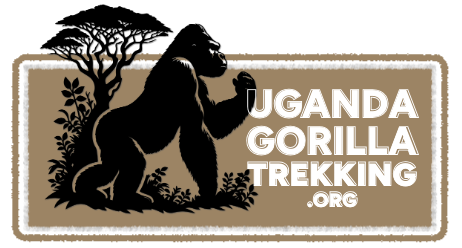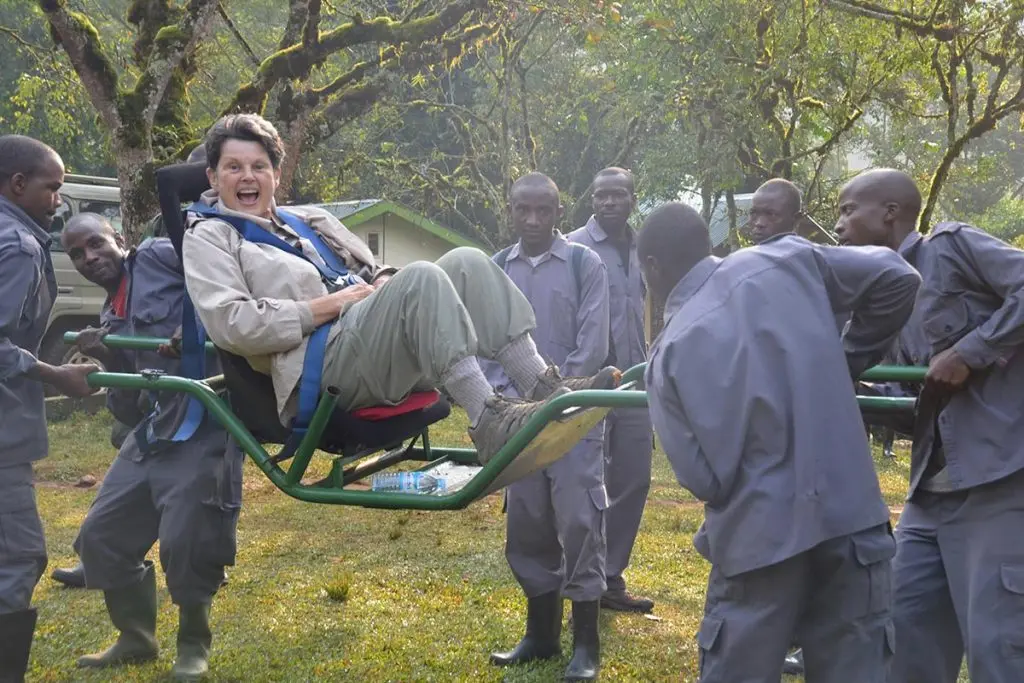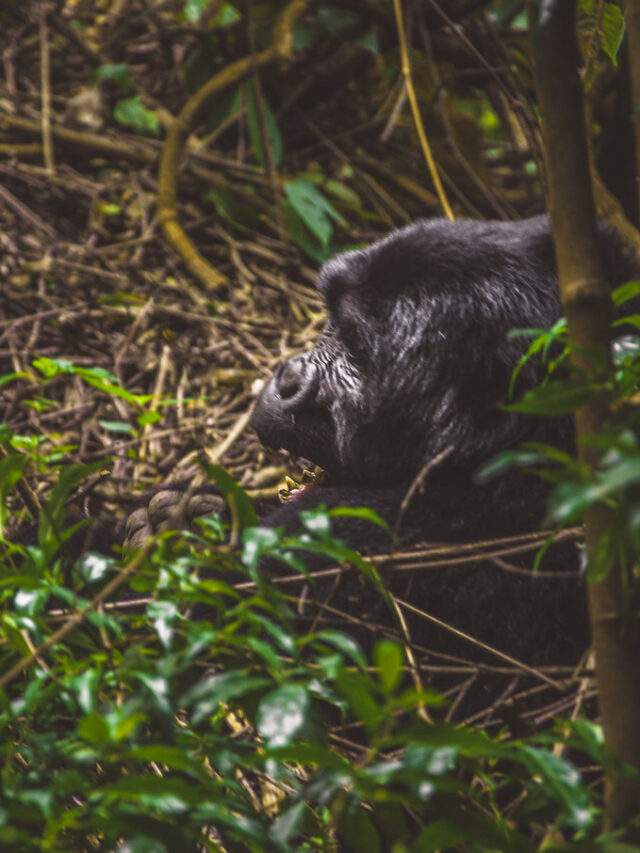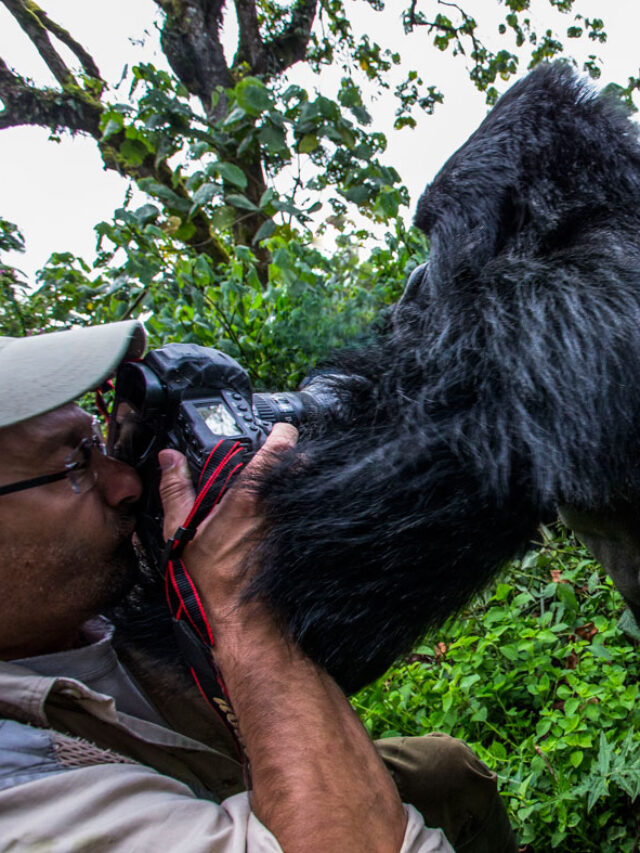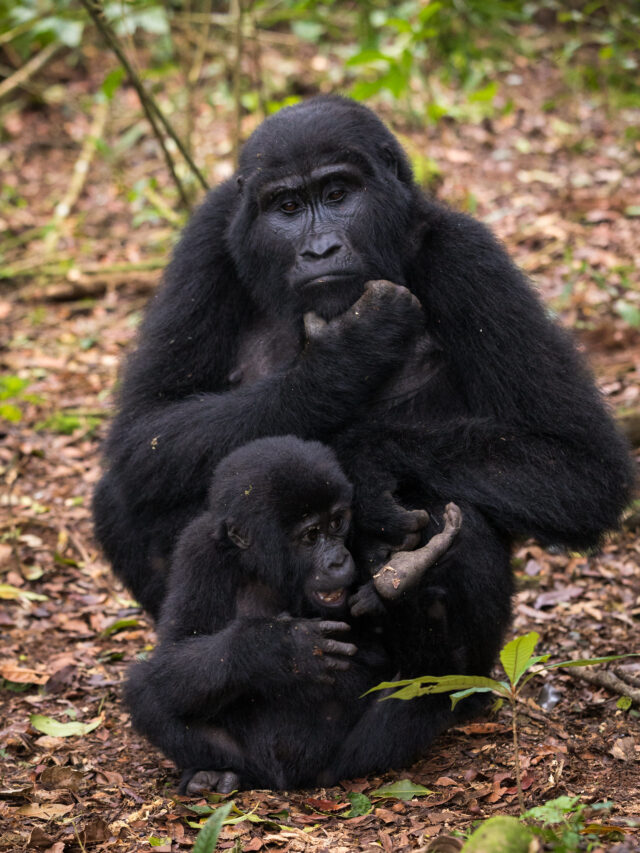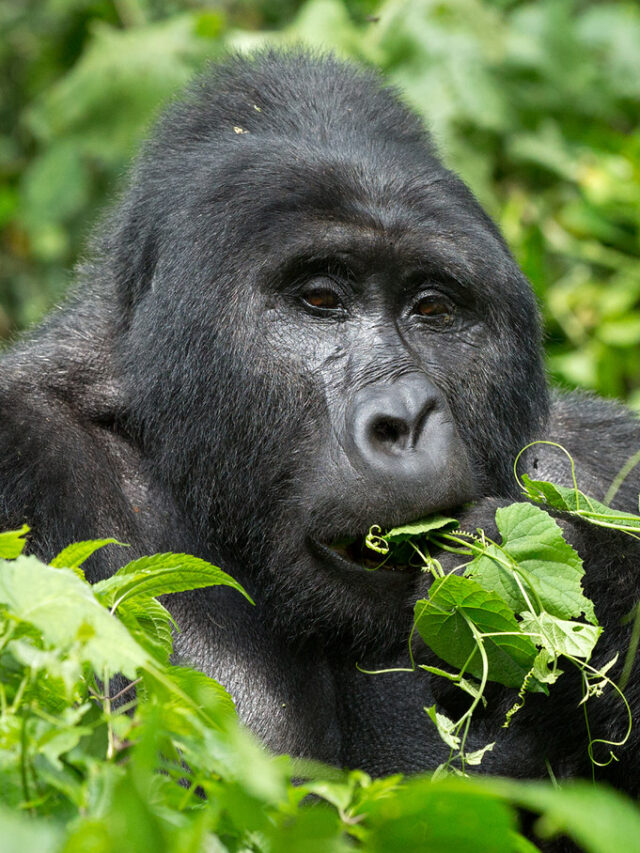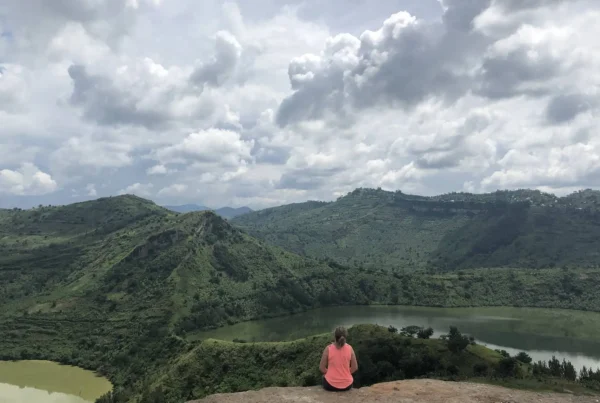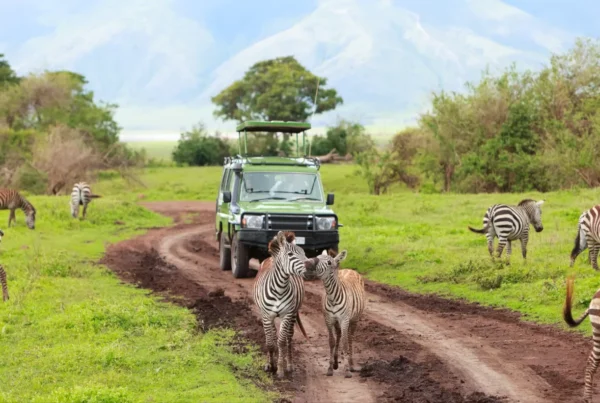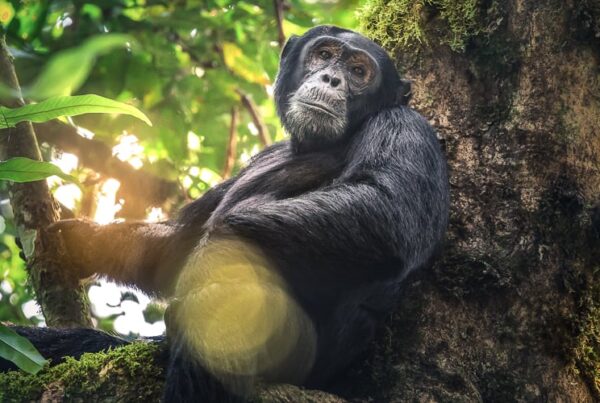Gorilla Safaris for Elderly Travelers – Comfort, Accessibility, and the Magic of Meeting Mountain Gorillas
For many people, the dream of meeting a mountain gorilla in the wild is not something that fades with age—in fact, it often grows stronger. For elderly travelers, this once-in-a-lifetime adventure carries a special weight: the understanding that some dreams cannot wait. In the lush rainforests of Uganda and Rwanda, the air is heavy with mist, birdsong fills the canopy, and in the shadows, one of the world’s most extraordinary creatures moves with quiet grace. Standing just meters away from a silverback gorilla is an experience that can change the way you see nature, and it is an experience that, with the right planning, is entirely possible for travelers in their 60s, 70s, and even 80s.
Gorilla Safaris for Elderly Travelers — Unlike younger adventurers who may take on steep climbs without a second thought, elderly travelers need a safari that is tailored to comfort, accessibility, and safety without losing the raw magic of gorilla trekking. Thankfully, modern gorilla tourism has evolved to offer options that allow almost anyone—regardless of mobility level—to share in this rare encounter.
Understanding the Challenges – and Solutions – for Senior Gorilla Trekking
Gorilla trekking typically involves hiking through dense forest, navigating uneven ground, and sometimes climbing steep, muddy slopes. Treks can last from just 30 minutes to over six hours, depending on where the gorilla family is located that day. For elderly travelers, the idea of long, strenuous hikes can be intimidating.
However, national park authorities in Uganda and Rwanda are experienced in accommodating trekkers of different fitness levels. On the morning of your trek, rangers assess each visitor’s abilities and assign gorilla families accordingly. Seniors are often placed in groups visiting gorillas closer to the trailhead, with shorter and gentler routes.
For those who cannot hike at all, there is the option of a sedan chair—locally known as the “African helicopter”—where a team of strong, trained porters carries you comfortably through the forest on a specially designed seat. This ensures you enjoy the same magical hour with the gorillas as everyone else, without the physical strain.
Uganda vs Rwanda for Elderly Travelers – Which is Best?
Both Uganda and Rwanda are excellent for elderly gorilla safaris, but they differ in terrain, travel times, and atmosphere.
In Rwanda’s Volcanoes National Park, treks are generally shorter and the forest is less dense, making walking easier. The biggest advantage here is proximity—just a 2.5-hour drive from Kigali International Airport to the park. This is perfect for seniors who want to minimize road travel and avoid long journeys after flights.
In Uganda’s Bwindi Impenetrable National Park, the forest is thicker and terrain more rugged, but there are more gorilla families to trek—making it easier to find one close to the trailhead. Bwindi also offers a variety of trekking sectors (Buhoma, Ruhija, Rushaga, and Nkuringo), some of which have gentler trails.
Mgahinga Gorilla National Park in Uganda is another overlooked gem. It has just one gorilla family but offers beautiful open bamboo forest trekking and fewer tourists. Its smaller size can mean shorter walking times, which is ideal for older visitors.
If minimizing physical strain is the top priority, Rwanda is the easiest choice. If you’re seeking more gorilla family options, varied landscapes, and potentially lower permit costs, Uganda may be the better fit.
Accessibility Services – Sedan Chair, Porters, and Park Support
The sedan chair service is a game-changer for elderly trekkers. Four porters carry you using a comfortable seat and harness system, navigating the trail as a team. This costs between $300–$500 per trek in addition to the gorilla permit. Porters can also be hired to carry daypacks and assist with walking for $20–$25—something we highly recommend for balance and safety.
Park authorities also allow special requests when booking, such as placing you in an easier trekking group or starting from the closest trailhead. It is important to communicate your mobility level and any health concerns to your tour operator in advance so that all arrangements can be made smoothly.
Lodging and Comfort Considerations
Accommodation plays a huge role in making a gorilla safari enjoyable for elderly travelers. Many lodges near Bwindi, Mgahinga, and Volcanoes National Park now have accessibility-friendly designs, with ground-floor suites, ramps instead of stairs, and vehicles that allow easy boarding.
For seniors, a lodge close to the park gate is ideal to avoid early-morning long drives before trekking. Many of these lodges also have stunning views, so you can relax after your trek while still feeling immersed in the wild. Some even offer massages and spa treatments—perfect for soothing tired muscles after a day in the forest.
Preparing Physically and Medically
Even if you choose an easy trek or sedan chair, some level of preparation is recommended. Gentle walking, stair climbing, and light stretching in the months before your trip can make a difference in comfort. Always get medical clearance if you have heart, lung, or joint issues, and carry essential medications with you.
Altitude can also affect some travelers—Bwindi and Volcanoes are both above 1,500 meters (4,900 feet)—so staying hydrated and allowing your body to adjust is important.
Costs and Booking Tips
The gorilla permit cost is the same regardless of age: $800 in Uganda and $1,500 in Rwanda for international visitors. For elderly travelers, booking through a specialist safari company is highly recommended—they can arrange for shorter treks, private vehicles, and flexible schedules. Many also coordinate sedan chair services in advance, ensuring everything is ready on arrival.
Book at least 6–12 months ahead if traveling in the peak seasons of June–September or December–February, as permits are limited.
Sample Senior-Friendly Gorilla Safari Itinerary (Uganda Example)
Day 1 – Arrival in Entebbe/Kampala
You’ll be met by your driver-guide and transferred to your hotel for rest after your flight.
Day 2 – Scenic Flight or Drive to Bwindi
Opt for a short domestic flight to avoid the 8–9 hour drive. Check into your lodge and enjoy forest views.
Day 3 – Gorilla Trekking Day
After breakfast, head to the park for briefing. Porters assist or a sedan chair is provided. Enjoy your unforgettable hour with the gorillas. Return to the lodge for a celebratory lunch and an afternoon of rest.
Day 4 – Optional Cultural or Nature Walk
Visit a local community or take a gentle forest walk.
Day 5 – Departure
Return to Entebbe or Kigali for your onward flight.
The Emotional Impact
For elderly travelers, this isn’t just a wildlife sighting—it’s a life milestone. Watching a silverback rise from the foliage, hearing the deep rumble of its chest, seeing an infant gorilla peer curiously from its mother’s arms—these are moments that stay forever. The journey might require special arrangements and extra care, but the reward is beyond measure. Age may slow the pace, but it doesn’t diminish the wonder of standing face-to-face with one of our closest relatives in the wild.
